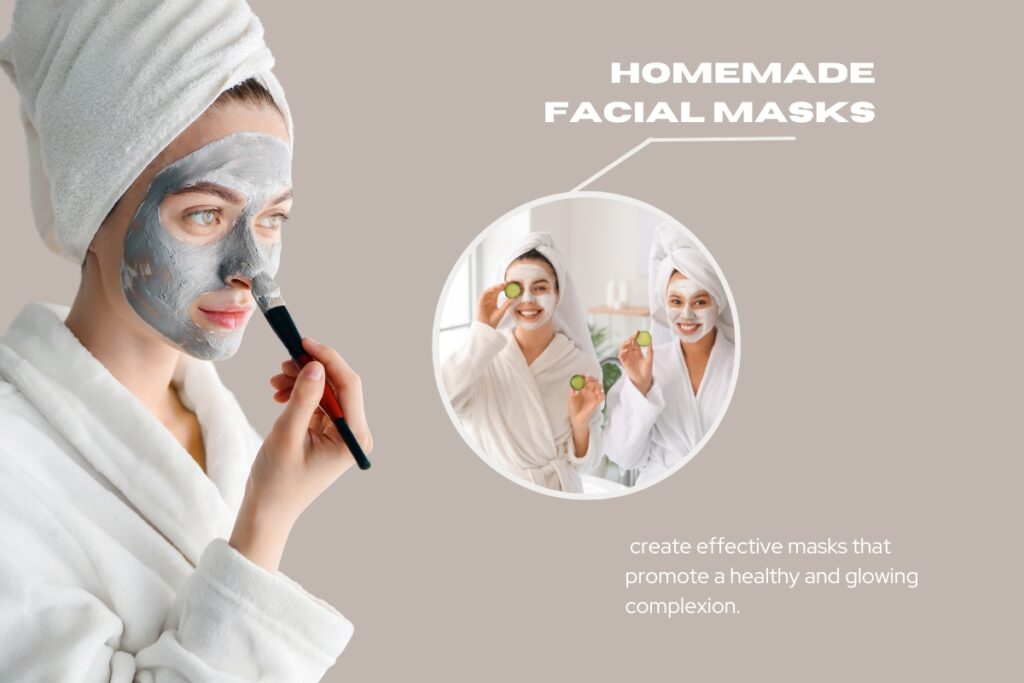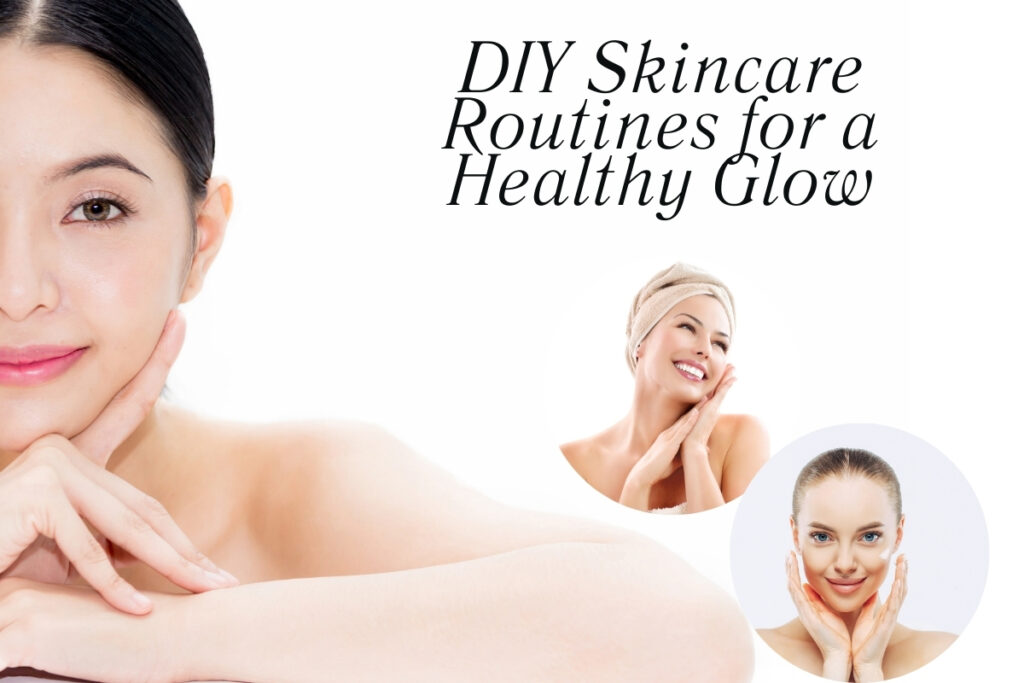What are the best DIY beauty remedies for glowing skin?

Overview
In this course, you will discover the best DIY beauty remedies that can help you achieve glowing skin. Whether you’re dealing with dryness, dullness, or blemishes, these natural and budget-friendly treatments will leave your skin looking radiant and healthy. Join us to uncover the secrets of DIY beauty and enhance your skincare routine.
Topic 1: Natural Ingredients for Glowing Skin
Introduction
In this topic, we will explore various natural ingredients that can help achieve glowing and healthy skin. These ingredients have stood the test of time and have been used for centuries in skincare routines. By incorporating these natural ingredients into your skincare regimen, you can nourish and enhance the appearance of your skin, without relying on chemical-laden beauty products.
1. Honey
Honey is a versatile ingredient known for its numerous skincare benefits. It contains antioxidants and antimicrobial properties that can help fight acne and reduce inflammation. Its natural moisturizing properties help retain the skin’s moisture, leaving it soft and supple. Additionally, honey acts as a gentle exfoliant, removing dead skin cells and promoting a brighter complexion.
When using honey for skincare, opt for raw, organic honey and follow these steps:
- Apply a thin layer of honey to your face, avoiding the eye area.
- Leave it on for 10-15 minutes.
- Rinse off with warm water and pat dry.
2. Aloe Vera
Aloe vera is a well-known plant with exceptional skin-soothing properties. It contains vitamins, minerals, and enzymes that nourish the skin, making it appear more radiant and youthful. Aloe vera also has anti-inflammatory and healing properties, making it beneficial for treating sunburns, acne, and other skin irritations.
To use aloe vera for glowing skin:
- Extract fresh aloe vera gel from an aloe leaf or use a store-bought aloe vera gel.
- Apply the gel onto your face and gently massage it.
- Leave it on for 20-30 minutes.
- Rinse off with cool water and pat dry.
3. Turmeric
Turmeric, a popular spice in cooking, has been widely used in skincare for its anti-inflammatory and brightening properties. It contains curcumin, a compound that helps reduce acne and hyperpigmentation, leaving the skin radiant and even-toned. Turmeric also acts as an exfoliant, removing dead skin cells and promoting a natural glow.
To create a turmeric face mask:
- Mix 1 teaspoon of turmeric powder with 1 tablespoon of honey or yogurt.
- Apply the mixture evenly to your face.
- Leave it on for 15-20 minutes.
- Rinse off with warm water and pat dry.
4. Rosewater
Rosewater is a gentle yet effective ingredient that provides a refreshing and hydrating boost to the skin. It helps balance the skin’s pH levels, soothes irritation, and tightens the pores, resulting in a healthier and glowing complexion. Rosewater can also be used as a natural makeup remover or facial mist throughout the day for a quick pick-me-up.
To incorporate rosewater into your skincare routine:
- Use rosewater as a toner after cleansing your face by applying it with a cotton pad.
- Alternatively, transfer rosewater into a spray bottle and mist it onto your face whenever your skin needs a hydration boost.
Topic 2: Homemade Facial Masks for Radiant Complexion

Introduction
In this topic, we will explore the world of homemade facial masks and discover how they can help you achieve a radiant complexion. Facial masks are an essential part of any skincare routine, as they provide deep nourishment and revitalization to the skin. By using natural ingredients that can easily be found in your kitchen, you can create effective masks that promote a healthy and glowing complexion.
Section 1: Benefits of Homemade Facial Masks
Facial masks offer a multitude of benefits for the skin. They help remove impurities, hydrate the skin, improve blood circulation, and stimulate collagen production. Unlike commercial masks, homemade facial masks are free from harmful chemicals and preservatives, making them a safer alternative for your skin. By using homemade facial masks regularly, you can achieve a natural glow and maintain a healthy complexion.
Section 2: Key Ingredients for Homemade Facial Masks
There are numerous ingredients that can be used to create homemade facial masks. Each ingredient has its own unique properties that target specific skin concerns and promote a radiant complexion. Some key ingredients include:
2.1 Honey
Honey is a natural humectant, which means it helps retain moisture in the skin. It is rich in antioxidants and has antibacterial properties, making it ideal for acne-prone skin. Honey also helps brighten the complexion and promote a youthful glow.
2.2 Yogurt
Yogurt contains lactic acid, which gently exfoliates the skin and removes dead cells, revealing a brighter complexion. It is also a great source of probiotics that help balance the skin’s natural microbiome, resulting in healthier and more radiant skin.
2.3 Avocado
Avocado is packed with essential fatty acids, vitamins, and antioxidants that nourish and hydrate the skin. It helps improve skin elasticity, reduce inflammation, and promote a healthy glow.
2.4 Oatmeal
Oatmeal is a gentle exfoliant that helps remove impurities and absorbs excess oil from the skin. It also soothes irritation and moisturizes the skin, leaving it soft and radiant.
Section 3: Homemade Facial Mask Recipes
Now that we have explored the benefits and key ingredients, let’s dive into some easy and effective homemade facial mask recipes:
3.1 Honey and Yogurt Mask
Ingredients:
-
- 1 tablespoon honey
- 2 tablespoons plain yogurt
Instructions:
-
- Mix honey and yogurt in a bowl until well combined.
- Apply the mixture to your cleansed face, avoiding the eye area.
- Leave it on for 15-20 minutes.
- Rinse off with warm water and pat dry.
3.2 Avocado and Oatmeal Mask
Ingredients:
-
- 1/2 ripe avocado
- 1 tablespoon oatmeal
Instructions:
-
- Mash the avocado in a bowl until smooth.
- Add oatmeal and mix well.
- Apply the mixture to your face and neck, avoiding the eye area.
- Leave it on for 15-20 minutes.
- Rinse off with lukewarm water and pat dry.
Topic 3: DIY Skincare Routines for a Healthy Glow

a) Understanding the Importance of Skincare Routines
Taking care of your skin is essential for maintaining its health and radiance. A skincare routine involves a series of steps and products that work together to address specific skin concerns and maintain overall skin health. By incorporating this into your daily routine, you can enhance your skin’s natural beauty and create a healthy, glowing complexion.
b) Identifying Your Skin Type
c) Cleansing and Exfoliating
Cleansing is the first step in any skincare routine. It helps to remove dirt, oil, and impurities from the skin’s surface. DIY cleansers made from natural ingredients can be gentle yet effective, ensuring your skin is clean without stripping away its natural moisture.
Exfoliating is an important step to remove dead skin cells and reveal a fresh layer of skin. DIY exfoliators can be made using ingredients like sugar, oats, or coffee grounds, providing gentle but thorough exfoliation.
d) Nourishing and Hydrating
After cleansing and exfoliating, it’s time to nourish and hydrate your skin. DIY face masks and serums are popular choices to provide essential nutrients and hydration to the skin. Ingredients like honey, avocado, aloe vera, and essential oils can be combined to create personalized DIY skincare products with numerous benefits for your skin.Both nourishing and hydrating practices are integral to promoting overall well-being, ensuring the body, skin, and hair remain healthy, radiant, and resilient against environmental stressors.
e) Sun Protection
Protecting your skin from the harmful effects of the sun is crucial for maintaining a healthy glow. DIY sunscreen options utilizing natural ingredients like zinc oxide and essential oils can offer protection from harmful UV rays while nourishing your skin.Effective sun protection helps prevent sunburns, premature aging, and reduces the risk of skin cancer. Regular application of sunscreen, reapplication after swimming or sweating, and avoiding prolonged sun exposure contribute to maintaining skin health. Prioritizing sun protection is crucial for overall well-being, ensuring enjoyable outdoor activities while safeguarding against the adverse effects of UV radiation.
f) Targeting Specific Skin Concerns
If you have specific skin concerns like acne, hyperpigmentation, or aging skin, incorporating targeted treatments into your DIY skincare routine can help address these issues. DIY spot treatments, serums, and masks can be customized with ingredients known to alleviate such concerns.Consistent use of these specialized treatments helps to effectively combat particular concerns, promoting healthier, clearer, and more radiant skin. Understanding personal skin type and concerns empowers individuals to curate a customized regimen, ensuring optimal results and overall skin well-being.
g) Weekly Skincare Rituals
In addition to your daily skincare routine, implementing weekly skincare rituals can further enhance the health and glow of your skin. DIY facial steaming, clay masks, and facial massages can help detoxify, tighten pores, and improve circulation, leaving your skin looking vibrant and rejuvenated.
